A group of enterprising Charlottetown Farmers’ Market vendors have followed Brett Bunston’s better-utilize-the-resource effort and are opening for take-out lunch on Wednesdays.
Regular market-goers know and love the Wednesday market in the summertime and are always sad to see it close in October, so this is excellent news.
It’s not a full-blown market by any means, and the focus, at least right now, is on take-out lunch: today Claudia’s La Sazon de Mexico was making fresh tortillas and serving tacos, Lori at Grandma Jaworski’s Foods was serving perogies, Abby’s Catering was there with noodles and spring rolls, and, of course, Brett was there, as he is every weekday with excellent coffee.
If you’re as enthusiastic about this effort as I am, and want to see it continue, vote with your lunch and come along next Wednesday between 10:00 a.m. and 2:00 p.m.
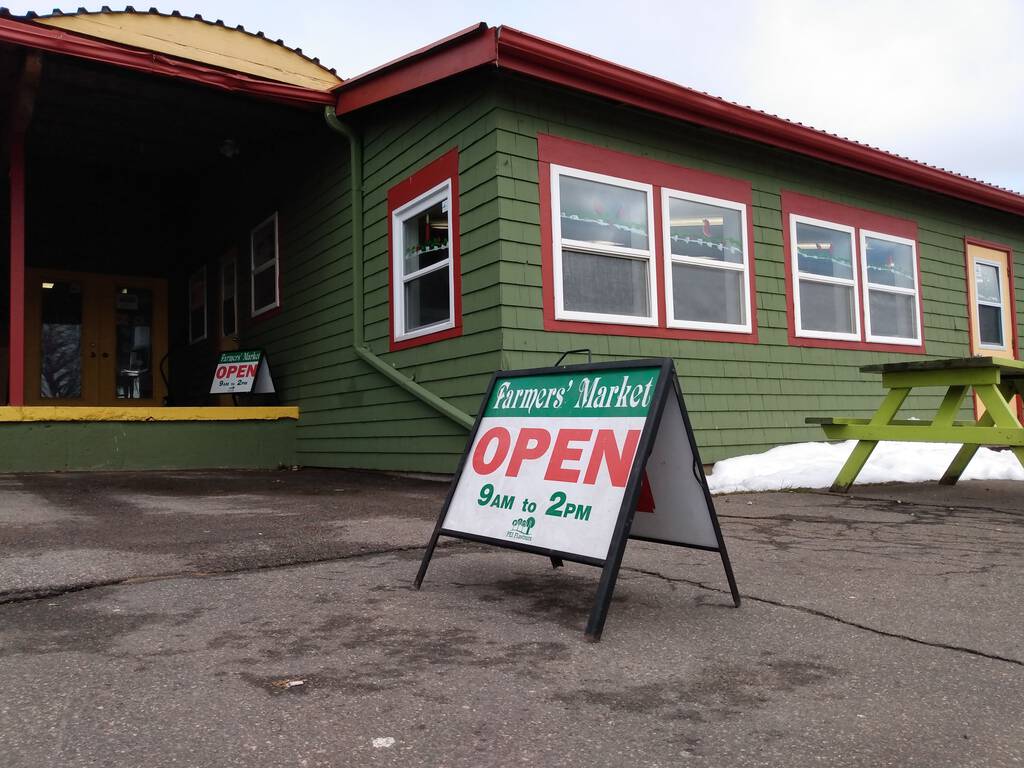
The overlap between what I write here and the regular everyday world is, most of the time, unidirectional: I write, you read. Other than Oliver and my mother (and mother-in-law) I’m never 100% sure there’s anyone out there reading, beyond the occasional comment or two.
But sometimes the regular everyday world speaks out.
On Monday night at City Cinema my friendly ticket-taker, Linda, unlurked herself as a reader, said kind words, and we had a nice chat.
This afternoon I had to go break it to Dave and Dorothy at Dave’s Service Centre that I’d cut the gasoline from my diet. Dave already knew. He’d read about it online. (The Kia Soul is still, engine aside, a car, and Dave and Dorothy will still look after that part for me; I have an appointment to have Dave install the snow tires on Tuesday).
My eyeglasses have been falling off my head more than I’d like, so I stopped in at Matheson Eyewear for a tune-up (Greg Matheson did a masterful job repairing my eyeglasses earlier this year); on my way back to my car I was stopped by Kevin, reader-of-blog, who handed me a Garnet Rogers-Archie Fisher CD (I’m listening to it right now; thank you, Kevin!).
Earlier this year I wrote a post about salted capers; Jeremy, from Rome, left a comment there; he’d come in the door via Ton. I started following Jeremy’s blog, and listening to his podcast. Today I realized that Olle and Luisa are in Rome and conspired to connect them with Jeremy; Ton chimed in. I’m hopeful they’ll have coffee.
Sixteen years ago I asked you readers to out yourselves; 137 of you did, and it made for fascinating reading. If you are so-moved, you are welcome to leave a comment below and say hello and tell us a little bit about yourself.
And then go listen to this, and maybe buy a copy.
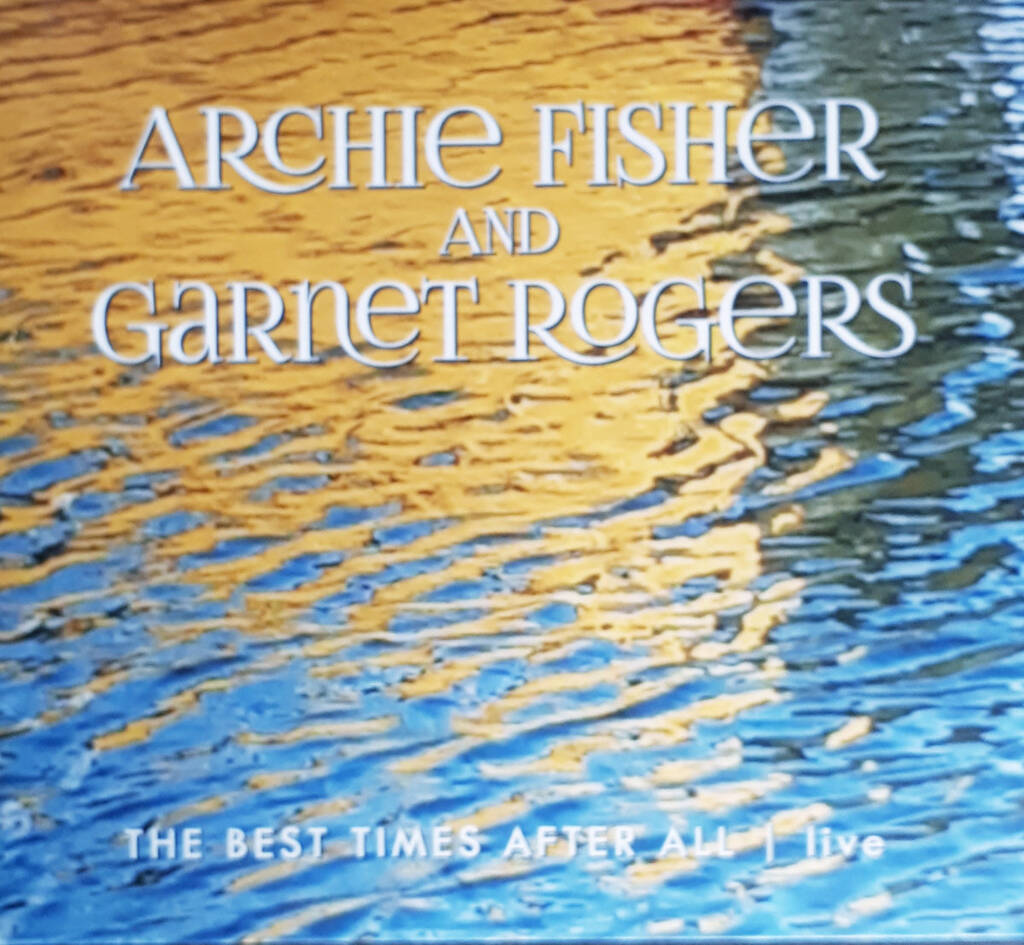
One of the lovely things about participating in a grassroots movement like the PEI Home and School Federation is the pride one can take for seeing the collective will of parents, guardians, teachers, administrators and staff result in real changes to the PEI education system.
There have been two great examples of this in recent months.
The call for a return to elected school boards that PEIHSF members expressed in the 2018 resolution Request for a Revision of the Education Act and a Return to Elected School Boards saw practical action taken today with the announcement that elected school boards will, indeed, return.
And, in a move I take particular pride in helping work toward, over many years, the 2017 resolutions School Food Guiding Principles and Provincial School Food Strategy, and the 2015 resolution Establish a Provincial School Lunch Program for All Island Children, after some false starts and a lot of work by many, many people in and out of government, will finally be realized in 2020 with the announcement in the Legislative Assembly by Minister of Education Brad Trivers that “it is definitely my goal to have a universal school-food program in every school across Prince Edward Island by September 2020.”
The tiny kernel of the seed of this project started on a fall day in 2013 when parent Lisa MacDougall came to a home and school brainstorming meeting at Montague Consolidated School. At that meeting we talked about resolutions and policy making, and Lisa got engaged, ultimately spearheading the original resolution on the topic. By 2016 Lisa had become President of the PEIHSF, with the support of a broad team of people across the province, pushed the issue forward to the point where it achieved momentum and, ultimately, became government policy.
I believe strongly that deliberate, broad, inclusive policy-making can result in positive change, and the PEIHSF, which has been doing this for more than 65 years, is a good example of this: resolutions start in small meetings at local schools, get distributed to every school across the province for discussion, and are then debated at an annual meeting each spring. When a PEIHSF resolution passes, its grassroots provenance makes it more likely to be taken seriously. It can be a slow process to see concrete action taken–both the examples cited above started being discussed well before they reached the resolution stage–but it works.
If you’re involved in education in PEI and you have an idea, bring it forward to your local home and school: there’s a good chance that it can become a better idea as a result, and that the better idea can change the lives of thousands of children.
I took the new Kia Soul EV to Access PEI to register it and I left with a new plate sticker, a new registration slip, and $23.00.
This is because registration for electric vehicles is free, and I’d already paid up for a year’s worth of non-electric registration expiring in April.
So the government paid me to register my car.
(Okay, they actually refunded me $23.00 I’d previously paid them…).
There was a small panic at the counter when my helpful clerk, who’d never encountered this odd situation before, worried that it would throw her ability to balance her daily accounts out of whack, but she was assured all would be okay.

Remember how we test drove a 2016 Kia Soul EV from Mike Kenny at Pure EV a month ago?
Well, in what may well be the longest test-drive-to-purchase period ever, today we took possession of the selfsame Soul.
Here’s my post-purchase shot from Mike’s Facebook page (Catherine’s hiding inside):
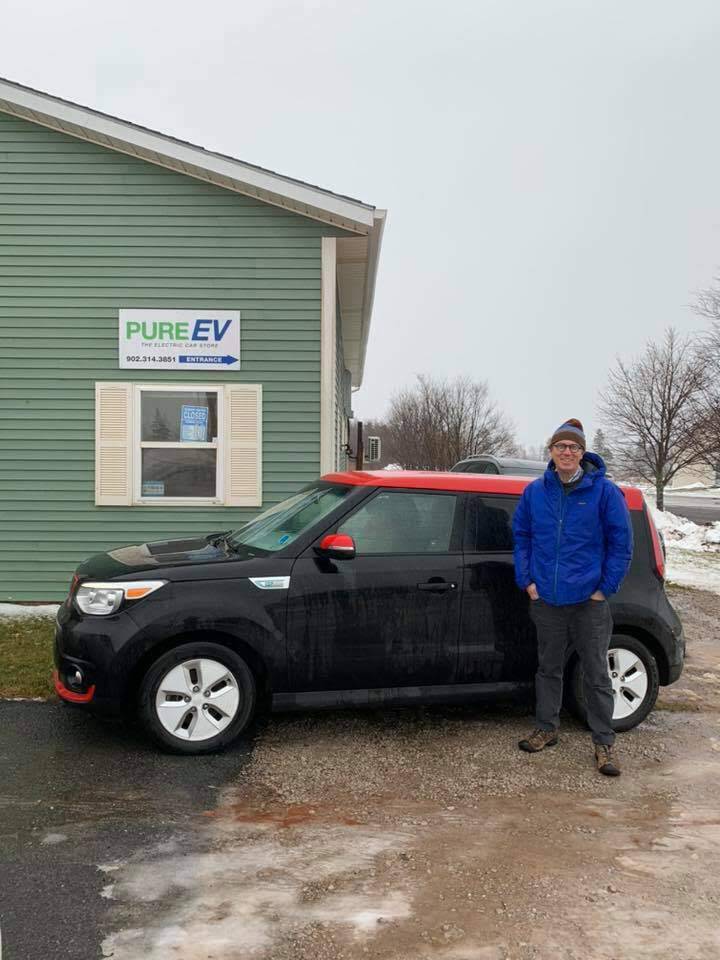
Much more to say about this soon, but for now let us take a moment to remember the 2000 VW Jetta that Mike took on trade:
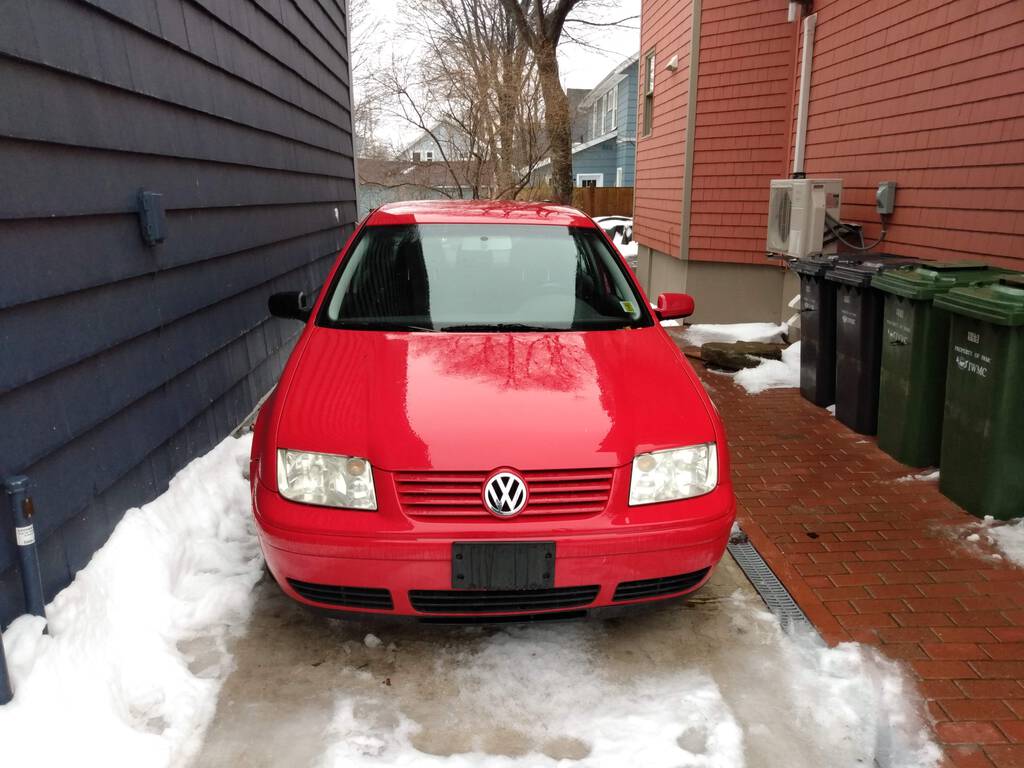
That Jetta served us well. We bought it new in the fall of 2001, meaning that it’s been our car for almost as long as Oliver’s been our son (while it feels like we covered a lot of ground in it, the mileage when I handed it over to Mike was less than 130,000 km).
I’ve been writing here about the Jetta almost as long as we’ve owned it, from that heady first check-engine light experience on.
I would be remiss if I didn’t tip my hat to Bob and Nettie Likely, who sold us the Jetta, and to Dave and Dorothy at Dave’s Service Centre on Belmont Street, who’ve kept it on the road for the last 8 years.
The Android OpenStreetMap-based app OsmAnd has an intriguing scheme whereby you can register your OpenStreetMap account and a Bitcoin address and then receive regular monthly deposits of Bitcoin based on your contributions to OpenStreetMap.
Over the last year I’ve received the equivalent of about $16.00 in Bitcoin as a result.
Today I got my regular seasonal appeal from the Internet Archive for a donation; I remembered from previous years that they accept Bitcoin donations, and that I had some Bitcoin to donate, so I sent them everything I had.
There’s something about this that I find enormously appealing.
In one last mad attempt to prove my love, I rode my bicycle to City Cinema tonight, thinking that somehow all reports of the incompatibility of snow, ice, salt, and sand with cycling were exaggerated.
Alas, they were not: it was a slippery, sketchy, cold end to a May-to-December romance that had to end.
This was truly the year of cycling for me: my first ride of the year was on April 30, out Kensington Road to the PEI Brewing Company for an energy efficiency event. That was a hard slog, and I had to hop off and walk up the last hill.
It got better.
I started cycling to get the groceries every week. I rode out to Home Hardware when I needed nails or electrical tape. I rented an ebike and rode to York. I cycled to the airport for an early morning flight, and back from the airport after a late night arrival.
By far and away my happiest cycling moments of the season were with Oliver: with Herculean effort he willed himself to become a cyclist this summer, and after only a week we were cycling to the Charlottetown Farmers’ Market every week. There are few greater memories I have this year than of cycling along the Confederation Trail with Oliver, having a chat, and waving at the people we passed with a happy hello.
Somewhere in there something snapped in me, and I transitioned from “I’ll do this because it’s the only just thing to do in a climate crisis” to “I really (really) love this.” Cycling stopped being a chore and became a joy.
Which is why it was especially hard to lower my bicycle and its trailer into the basement tonight and close out the 2019 cycling season.
I’ll be counting the days to May 1, 2020.
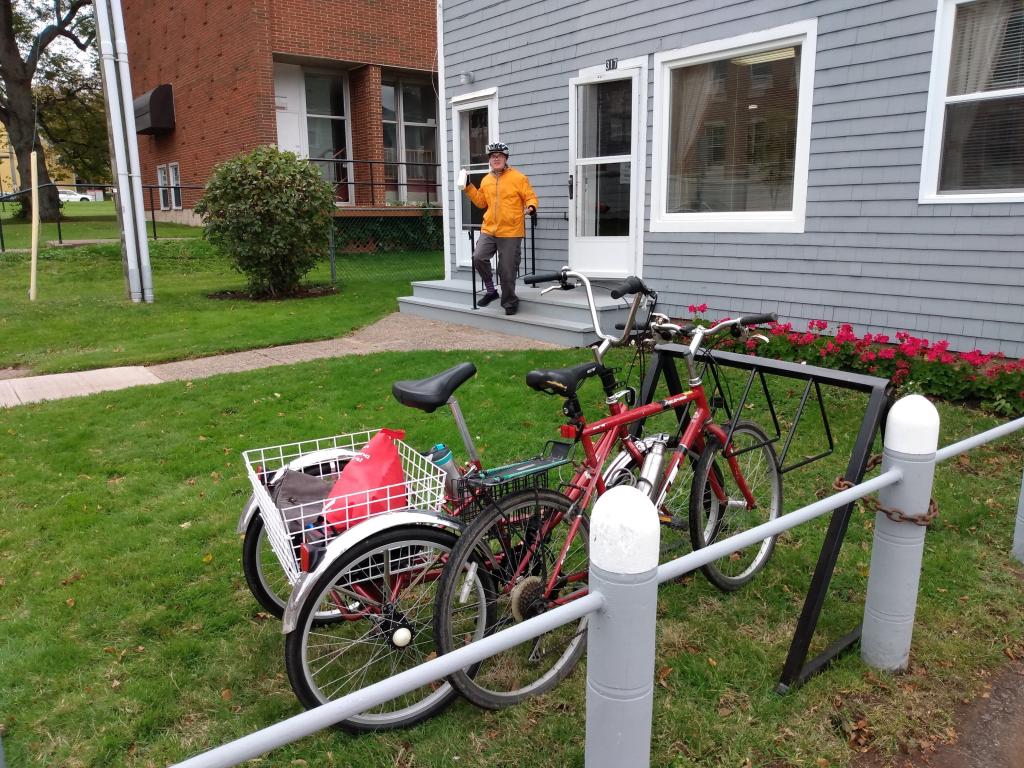
I took this photo of me and and Oliver last week on the train home from Ontario. Its accidental fogginess proved an accurate reflection of how we were feeling at the time.
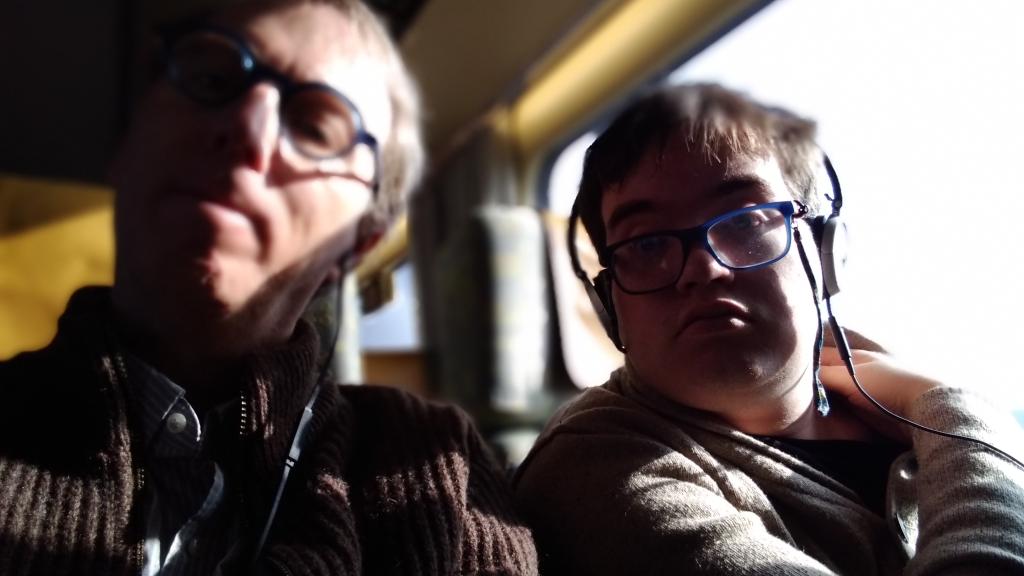
When I was 16 years old, my father and I started a company together called Cellar Door Software.
We got the name from the CBC: one day we were listening to the radio in the car and heard a segment where listeners had been invited to submit nominations for the most mellifluous words in the English language; someone suggested cellar door. We agreed. And that became the name.
(We also had a pretty nice-sounding cellar door at our family home in Carlisle).
The personal computer was the grand overlap between my life and Dad’s: he was an early adopter of computers, using them from the punch-card days onward in his work as a scientist. We both became fascinated, in the early 1980s, with personal computers, eventually acquiring a Radio Shack Color Computer for the family.
Cellar Door Software became an umbrella for two projects: my work as a programmer, and our joint work offering computer courses, both at the local high school at at the Hamilton YMCA, to children and adults.
We borrowed $2000 from CIBC to start the business in September of 1982 and we ran it for three years until we closed it down–likely, if memory serves, because I moved away from home–in August of 1985.
We used the $2000 for a bunch of capital expenses, which my brother Mike found in a PDF file this week:
- Grand & Toy filing cabinet ($64.64)
- Centronics printer ($616.25)
- Sears cassette recorder ($40.53)
- Texas Instruments cassette recorder ($69.00)
- Used Atari 400 computer ($80.00)
- Two used 5-1/4” disk drives ($10.65)
- TRS-80 Model 4 computer ($1000.00)
- Electrohome monitor ($170.13)
The printer (a dot-matrix) and the TRS-80 Model 4 were both in service of my work for Neil Evenden at Skycraft Hobbies, where I modified an inventory control system to better suit the needs of his hobby shop.
Our primary source of income otherwise were our courses at the high school and at the Y: in both cases we used Sinclair ZX-81 computers and black and white televisions, one setup for every two students. We taught the very most basic programming, like:
10 PRINT "HELLO WORLD!"
20 GOTO 10
It was my first exposure to teaching, my first exposure to “entrepreneurship,” and helped me pay for university.
Over the three years we ran the business we earned a total of $3946.30.
At some point during our business tenure I had an opportunity to take a batik course, and I created a sign for the business; it’s hung in Dad’s workshop ever since:
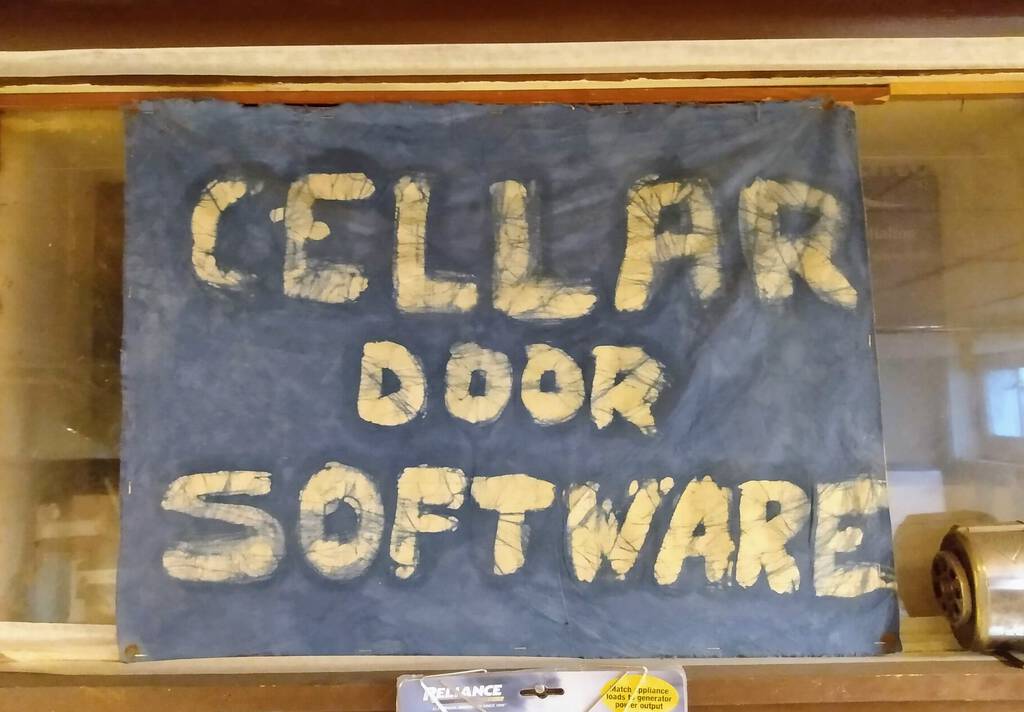
When my father retired from his position as a research scientist at the Canada Centre for Inland Waters, he took on the task of editing and distributing a monthly newsletter to his fellow retirees. By the time he handed over the editorial reins in 2018, he’d put out 100 issues, filled with announcements, jokes, cartoons and updates. He took the newsletter very seriously, and my mother, brothers and I all have memories of various family vacations and functions requiring time set aside to allow Dad to set up his laptop in an impromptu workspace to ensure the newsletter went out on time.
When Dad died two weeks ago, I sent a note to the new editors of the newsletter, and they sent word of his passing to the retirees mailing list, which prompted a flood of messages of condolence, often with work stories from the early years.
I offered to send a brief note for inclusion in the newsletter, on behalf of my brothers and I, which they generously agreed to include. This is what I wrote:
A Special Note from Norm’s Son
Our father, Norm Rukavina, longtime editor of this newsletter, died this week at the age of 82.
There has never been a time in our lives when we didn’t closely associate Dad with “The Centre”: the family moved from Ottawa in 1968 so that he could take up work at CCIW, and he remained there for his entire career. His involvement with CCIW and, later, NWRI, was the backbone of his life and, as his kids, the backbone of our childhood. During the late 1960s and through the 1970s we joined Dad in the field each summer on the shore of whatever Great Lake he was focused on the nearshore sediments of at the time; while he took core samples, we learned about salamanders from park rangers. We watched the Moon landing in the back of a Government of Canada VW bus while in the field. We all remember the experience of getting presents from the CCIW Santa Claus every Christmas in the auditorium, and we marvelled at how closely our presents matched what we’d discussed with our parents. Other memories include the CCIW open houses, getting to eat in the cafeteria when Dad would take us to work, being on a first name basis with the Commissionaires. And nightly references around the supper table to mysterious places like “Hydraulics” and “Tech Ops” and “Drafting,” of which we knew little.
It took Dad a long time to retire: we always got the impression this was a combination of there actually being follow-up work that needed doing, with, perhaps, a sense that he wasn’t quite sure what would happen if he stopped working altogether. Eventually, however, there came a day to load the last cardboard box into the car, hand in his pass, and drive home for good. After retirement Dad took great pleasure in editing the retirees’ newsletter: it kept him in touch with good friends, kept him wise to the latest technology, and provided him with a steady stream of jokes to send his children. He also enjoyed the get-togethers enormously, and would speak to us of people he’d meet up with, names we’d been hearing for years and years and years.
From the day he started work in Burlington, Dad kept a daily journal, mostly just bullet points about what had been achieved that day. We picked some off the shelf tonight and were amazed that the cast of characters in his working life in 1968 included many people we’ve heard from on the phone or by email this week with memories and messages of condolence. It’s brought us tremendous comfort to know that Dad was a part of so many people’s lives. Working at The Centre was, to we kids, simply what a Dad did, and so formed our assumption about how working life worked. It was a pretty good template to start out with.
Thank you to everyone who’s reached out this week to us; it’s truly appreciated. We’re suggesting that those who want to memorialize Dad make a donation to the Joseph Brant Hospital Foundation (jbhfoundation.ca): Joseph Brant took excellent care of Dad in recent years, and in his final weeks. It’s also been an important part of our family’s life for more than 50 years, most recently with the more than 1,500 hours of volunteer work Dad did there after retirement.
The editors, Jo-ann and Clint, added a note of their own:
Norm was instrumental in starting our CCIW retirees coffee club, which now has over 200 members, and produced 100 issues of this newsletter, up until May 2018. We have big shoes to fill. It’s a great help in keeping the retirees in touch with each other, and our monthly coffee meetings are well attended, usually numbering 25 to 40 people. Norm was a wonderful man, very well liked and respected.
Norm was also one of the original Research Scientists at CCIW working in the then Limnogeology Group. He was one of the “Trailer Trash”, working on site in the trailers before the current building was erected. He was a good friend and colleague and he will be long remembered and missed by many.
Until last week I never truly understood how valuable, important and comforting condolences are: the notes, cards, and emails we’ve received, and the people who’ve stopped me on the street, or at the market, to express their sympathies have all offered tremendous comfort. Who knew.
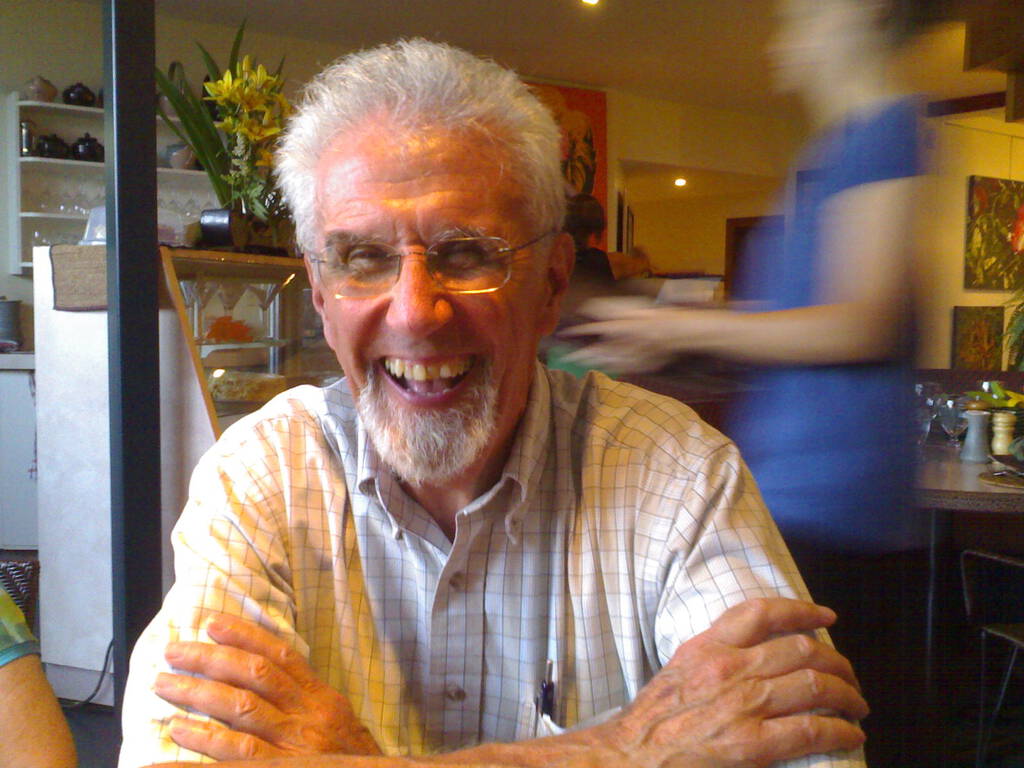
 I am
I am